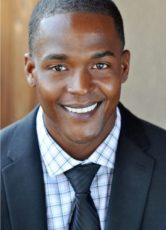
Portia Scott runs the voice-over department at Coast to Coast Talent Group in Los Angeles, specializing in animation, video games, and commercial ADR. Starting as an actor, she transitioned to representing voice actors 25 years ago. During a conversation with the SAG-AFTRA Foundation, Scott gave advice to performers who aspire to do voice work.
An actor’s agent
Scott considers herself to be an actor’s agent. “My joy is really being able to work with my clients and get them the opportunities to be able to live their dreams,” she says. She and her team download about 700 to thousands of auditions every day for the multiple projects that come across Scott’s desk. In today’s market, with actors making recordings from their own home studios, Scott works with talent to polish their sound. “We’re constantly making sure people’s home studio is competitive, it’s sounding good,” Scott shares. “So there’s just all this email business that happens probably 70 percent of my day. And then we’re taking meetings, and signing new talents.”
Before seeking representation
Scott encourages talent to find a focus in their career for which to strive. Rather than wanting to “do it all,” she asks actors to think more specifically. “I would say decide what you’re going to do. Everybody wants animation, right? … Decide what it is that you want to do. Do you want to do audiobooks? ADR? Video games? Decide that. And once you’ve made that choice, I say, train. Get around town, get into classes, and if you’re outside of the LA area, make sure that you’re training with people in the LA area because our market is very different than the rest of the country. So I would say get your skill set sharp, become really good at what you do, build out a demo, and then submit your demo to an agency [that’s at] the level you are. Don’t go right to the top agencies because you’re just going to get lost in that process.”
Be ready for the market
With all the talent that comes her way, Scott sees her fair share of actors who are not quite ready for the voice projects at hand. “I’m a huge proponent of taking classes, working on your skill set, and making sure that you’re ready for the market that you’re trying to merge into,” she asserts. “Because nothing’s worse than sort of bringing yourself to market and not being ready, because then people just go, ‘Oh.’ … And I’ll make this one note: Actors, when you submit, try not to send a blanket email to every agent that you have received on a list and send that out. And if you do, remember to Blind CC—just saying! So really the takeaway here is skill set, training, work on your craft, make sure you’re ready for the market.”
A social media presence
Make sure your voice package is ready. For Scott, that includes a website, as well as demos that are both current and relevant. She says, “The industry shifts. Animation shifts every couple of years. Commercials shift. So make sure that it’s current content [that] reflects the market today. And making sure that you either have your YouTube channel, your social media—just making sure that all of that represents you with current content.” A social media presence is indeed important to her. She explains, “You get measured by how many followers you have. But that aside, it’s an important tool that I definitely use in pitching. Sometimes they don’t want the recorded demo. They don’t want to hear the read. They want to get a sense of the person and the actor, which is super important a lot in voice-over because they want to like the people they hire. So it’s essential; it’s part of the package— it’s the headshot, it’s the resume, it’s the social media. It really is where we are today. And I think it’s essential to success in this career.”
“Tell me about yourself”
For Scott, meetings always take place over the internet. After she’s asked actors all the basic questions, she makes a practice of saying, “So tell me about yourself.” The responses she tends to receive are often not quite what she’s looking for. “Eighty percent of actors are always miffed by that question, and I think they’re just sort of like, ‘Oh, what do you mean?’ And I’m like, well, sure I want to know whether you have a tomato garden or not. But that’s not the point of the meeting. When I say, ‘Tell me about yourself,’ I want you to tell me about yourself in the space of what you’re interviewing for. So I want you to tell me about yourself—that you either worked on this show or that show, you’re just starting out, who you’ve trained with, and how do you see yourself in this part of the industry? So that’s what I want to know when I say, ‘Hey, so tell me about yourself.’”




